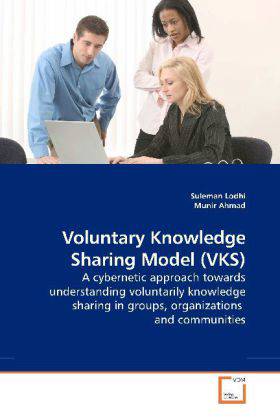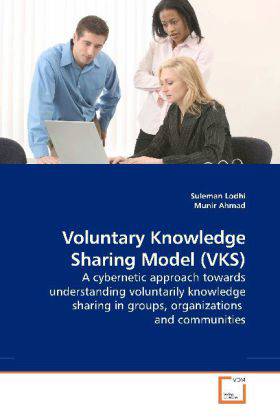
- Afhalen na 1 uur in een winkel met voorraad
- Gratis thuislevering in België vanaf € 30
- Ruim aanbod met 7 miljoen producten
- Afhalen na 1 uur in een winkel met voorraad
- Gratis thuislevering in België vanaf € 30
- Ruim aanbod met 7 miljoen producten
Zoeken
Voluntary Knowledge Sharing Model (VKS)
A cybernetic approach towards understanding voluntarily knowledge sharing in groups, organizations and communities
Suleman Lodhi
Paperback | Engels
€ 71,45
+ 142 punten
Omschrijving
The real challenge for organizations competing in Knowledge Economy is not just to store and retrieve data or information more efficiently, but the fundamental issue is to increase value creation from the Knowledge Assets present in organizations. Hiring the best brains available in the world and installing the most modern computer equipment would not ensure an innovative organization. The study uses concepts from cybernetics and epistemology to present a model on voluntary knowledge sharing at individual, group and organization levels, elaborating the need to manage knowledge workers differently to obtain high performance. The model developed should help analyze low performance of knowledge organizations and provide directions for developing a new generation of software. The study should be especially useful for students and researchers in management sciences domain, professionals in Organizational Development, and Software Engineers working on knowledge based software.
Specificaties
Betrokkenen
- Auteur(s):
- Uitgeverij:
Inhoud
- Aantal bladzijden:
- 108
- Taal:
- Engels
Eigenschappen
- Productcode (EAN):
- 9783639198485
- Verschijningsdatum:
- 22/09/2009
- Uitvoering:
- Paperback
- Afmetingen:
- 150 mm x 220 mm
- Gewicht:
- 161 g

Alleen bij Standaard Boekhandel
+ 142 punten op je klantenkaart van Standaard Boekhandel
Beoordelingen
We publiceren alleen reviews die voldoen aan de voorwaarden voor reviews. Bekijk onze voorwaarden voor reviews.








